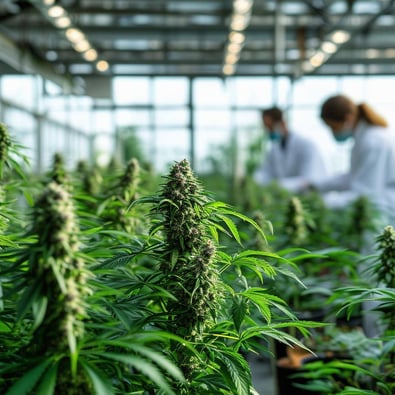Cannabis laws enacted in 2020 in New Zealand has improved access to medical marijuana, resulting in a shift toward high THC flower-based options instead of CBD oils. Massey University research recently confirmed that while the prices have come down since the law was enacted, the cost of prescriptions and consults for the medical marijuana scheme is still a challenge, especially for Māori and older people.
Moreover, some researchers are worried that a growing number of medical marijuana clinics is prioritizing profits over patient care, writes 1 News.
“What we’re seeing now is that most products that are approved (verified) now under the scheme are high THC products and they are flower products rather than, you know, oral oils and liquids," Massey University researcher Marta Rychert told the outlet.
Rychert said that while the products are prescribed in the "vast majority" of cases, there are cases of new clinics that are subsidiaries of companies licensed to produce these products. She believes there is a risk of "putting profit ahead of the patient's welfare."
However, not everyone agrees. Cannabis Clinic's consultant Dr. Wazeem Alzaher said that this is not the case. “And we have safety mechanisms, for example, like we communicate with everybody’s GP, we request people to provide us with copies of their background medical notes," he said.
Alzaher added that patients wait about a week to see a doctor and a prescription is not guaranteed.
Patients like Aucklander Nick Scott, who has PTSD and ADHD, has had positive experiences using medicinal cannabis, while the Medicinal Cannabis Council maintains that there is no evidence of profit being prioritized over patient care.
Hemp Industry Association Campaign
Meanwhile, the New Zealand Hemp Industry Association (NZHIA) recently launched a three-month campaign urging the government to remove industrial hemp (iHemp) from the Misuse of Drugs Act (1975) and the Medicines Act (1981), which classify hemp as a controlled substance.
Industrial hemp, with THC levels below 0.35%, is not considered a drug, but its inclusion in these acts creates unnecessary regulatory barriers, limiting the industry’s economic and environmental potential.
"Our goal is to have a review of our regulations announced by early 2025 leading to a fully enabled iHemp industry outside of MODA by 2026 – this election cycle," writes NZHIA. "This can be done if we can harness the power of the Hemp Army to act, share and make first contact on behalf of iHemp."
According to NZHIA's 2020 report if the oversight of hemp shifts from the Ministry of Health to the Ministry for Primary Industries and the Ministry of Business, Innovation, and Employment, hemp could generate $2 billion and create thousands of jobs by 2030.





